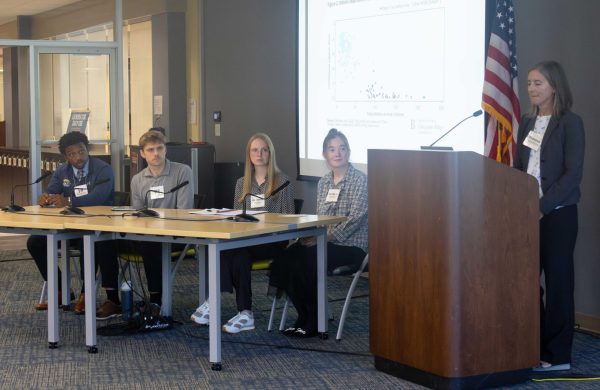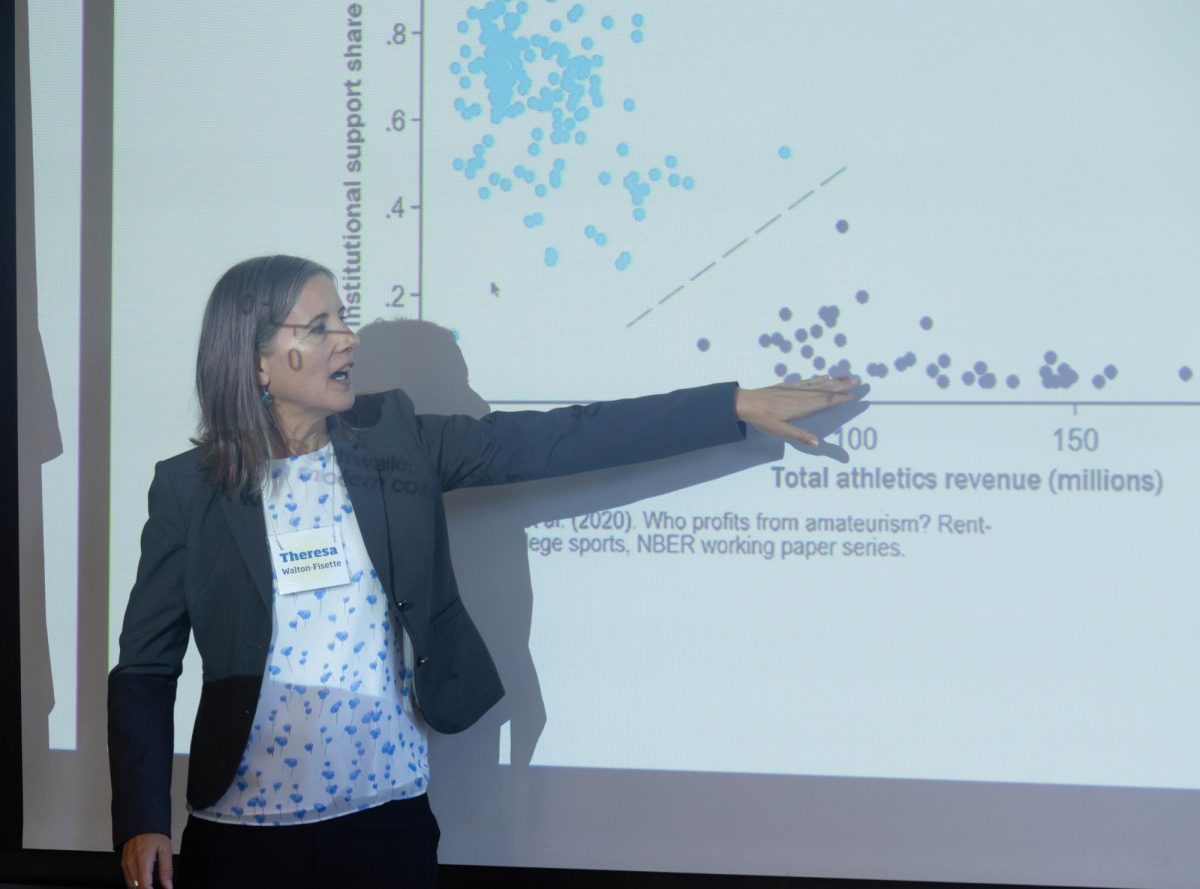About 238 years ago, the Founding Fathers signed the document that would eventually become the law of the land. To commemorate Constitution Day, the University Libraries offered educational programs and invited a featured speaker Sept. 17, 2025.
Located in the Harrick Garden Room, the event program tackled equal protection under the law, focusing on collegiate athletics and the 14th Amendment as it relates to Title IX.
“When laws get challenged, it’s often on their constitutionality, and so Title IX is a pretty old law. So it’s been tested quite a bit, but there are huge changes happening right now in collegiate athletics,” said Theresa Walton-Fisette, a sport administration professor and the featured speaker. “It started with being able to pay athletes for their name, image, likeness, which was not allowed for a long time.”
Walton-Fisette covered Title IX in addition to other civil rights legislation, including the passing of the 14th Amendment, which predated and paved the way for the passing of Title IX.
“Mostly, I’m teaching students who already have a big interest in sports and a pretty solid understanding of sports and how they operate. But I don’t think everybody has that. And then, on my students’ side, they might not have that kind of understanding of how the legal system works,” Walton-Fisette said.
Walton-Fissette came of age when Title IX was officially passed in 1972 and noted that she had taken for granted the opportunities presented in the bill.
“I know my grandmother was a huge sports fan. That’s how I became interested in sports in the first place,” she said. “It was not until I started studying these things and I realized what I had that she didn’t have. So I think it’s part of what makes me particularly interested in this angle.”
Once Walton-Fisette finished discussing, the floor was opened up to a panel of four undergraduate and graduate students, who joined the discussion with two rounds of questions prepared for Walton-Fisette about the lecture.

“I thought it was really important to bring the students into it. That’s the number one focus of all of this. It’s not anything else, except education, but in doing that, I thought it would be good to identify a topic, and in this case it’s Title IX and equality under the Constitution,” said Christopher Banks, a political science professor and event moderator.
Banks was crucial in helping organize the event, joining the Constitution Day event planning about 20 years ago when he took on the role of pre-law advisor.
He explained that while there is personal academic motivation for being a part of these programs, he also believes that events like these are highly beneficial for students as well.
“I think it brings a perspective to the students that is lacking in some ways because we don’t see these perspectives too often about what the meaning and significance of Constitution Day is,” Banks said. “The day was founded essentially by signing it, not ratified, but signed. It’s something that is important to recognize as a part of our culture and our legal framework.”
Banks emphasized that the content of the event also ties to current events, especially for student athletes and those impacted by inequality in general.
“I think it’s important for everybody in the community to know what student athletes do and that they do have a chance. They’re not just amateurs anymore in the way one would think about it. They are now professional people who are getting paid money to do the thing. And the question is, how equal is that?” he said.
Often, documents like the Constitution appear so far removed from reality that people tend to neglect its impact on their society. However, the Constitution affects all aspects of American lives.
“I think when we are thinking about the Constitution, it’s kind of our basic set of laws. So, then everything kind of loops back to that in terms of those tests that the courts make for every piece of legislation that comes through,” Walton-Fisette said. “I think it’s more of a conversation, I think, than people realize, between all the branches of government.”
Ava Dunn is a reporter. Contact her at [email protected].


